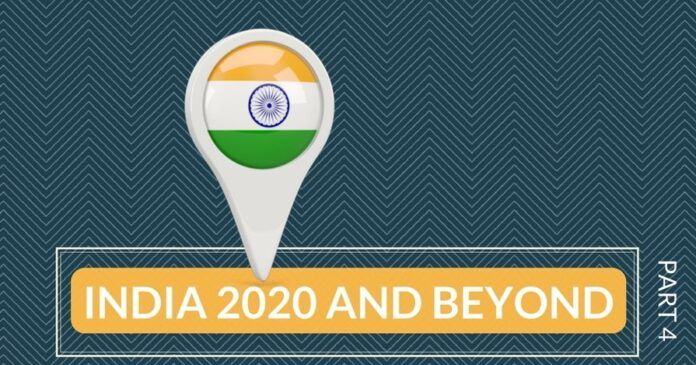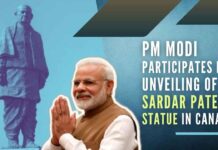
The Previous parts of this series can be accessed here Part 1, Part 2, Part 3. This is Part 4.
As India celebrated its 69th Republic Day the debate continues unabated about the real State of the Republic and whether it is turning into a republic of inequality as it ranked a lowly 62nd among 74 emerging economies, falling behind even such champions of inequality as Brazil, Russia, China, and Pakistan ….
Its been reported not just the poor but even the middle class – limited in numbers – are hurting from the lack of equal opportunities of ambition and growth in India often compounded by effects of incrementalist & reluctant policy reforms which first propose to eliminate only to re-impose fresh new restraining layers of red tape and thus these sources of inequality ensure India’s growth story never trickles beyond a tiny elite to really become inclusive in character.
A large part of the problem is also the Political classes and their never ending Vote Bank policies often masquerades as pro-poor and anti-elitist policymaking but is, in reality, pro-poverty and pro-inequality and then there is this long gripe that even after so many years of independence from British Raj & the subsequent end of Cold War era, the Indian republic has still not managed to dismantle Colonial & Marxist era biases on the Institutional and Constitutional Public governance structures and is often caught perpuating the same old style of thinking and nothing ever really significantly changes for good in India.
Political Leadership should understand the need to innovate and change the way they serve and govern people they represent.
Much was expected from present Government to buck the trend and unleash a series of pathbreaking reforms putting an end to years of Policy paralysis through good governance and though Modi Govt has many policy achievements to its credit in line with its vision but implementation challenges continue to cripple service delivery and Govt has been largely unable to bely the claims of critics that its Policy programmes are not moving faster on implementation and hence the benefits are not reaching people at the rate and scale required to bring about transformative changes across the country.
Notwithstanding many new Policy achievements, the challenge before Modi government is therefore to ensure the reforms undertaken so far reach the grassroots level, to benefit the common man which still remains its unfinished agenda.
The other major challenge confronting Modi govt is this combination of frequent Elections at Central, State & Municipality levels and a large restive population imposing huge pressures of expectations as general public mood demands instant visible results with very poor tolerance for delayed or poor Policy deliveries no matter what the circumstances facing the Nation today !!!!
We are living in the age of instant gratification and heightened public expectations put overwhelming pressures on Government to engage with Public at large in real-time across every touchpoint and provide time-bound positive results….
Increasingly, this means Political Leadership understanding the need to innovate and change the way they serve and govern people they represent whenever and in however possible ways to meet the Public demands ….
My previous posts (part 1, part 2, part 3) covered the importance of systemic Institutional reforms and Decentralised 4 Tier System of Governance in India which will not only be given the responsibility of shaping the destiny of the Nation but essentially facilitate to mobilise both People’s and Public Institution’s participation in developing and implementing programmes launched by the National leadership for Public good in a large diverse ancient society like India.
Sequel to the last post wishes to cover aspects of Human Resources in Nation building and governance. The greatest and most precious asset of a country is its people who exploit all natural resources and potentials of a geographic region. The people from the wealth of a nation and it is on the quality of citizens that the prosperity of a nation depends and if we dwell back into the history of civilizations, this hypothesis becomes crystal clear.
Govt has to build healthy ecosystems, team spirit and shed self-service in ICS.
This became the main reason behind the economic revolution achieved by some countries, badly battered and ruined during Second WW with economies virtually in shambles. But yet with organizational skill, good governance, inventive genius and indomitable spirit of their people, they achieved, within a short span, a measure of a momentous miracle and not only rejuvenated their own economies, but also exported their surplus produce to other nations who needed them. They accomplished this task by the optimum utilization of their precious manpower.
Lateral Entry for Specific Govt of India Mega Projects :
To draw parallel relevance to the topic of national interest, one of the great big hopes from Govt of India is to recognize that in the 21st century economy of India, a quarter century after liberalization, there is an urgent important need for specialized skills and knowledge in policy-making and administration at all levels of Government. Drawing talent from the private sector with its more target-oriented approach will improve the overall performance of the government and also, more competition will encourage career civil servants working in Govt to develop domain expertise in areas of their choice.
In this context are some of the this-First-please approaches for Modi Government with potential for immediately visible result oriented outcomes :
Rightsizing and Re-training of India’s Civil services :
Its a known fact, ICS needs reforms and Govt can not afford to delay and expect good results. Internal reforms—such as insulation from political pressure and career paths linked to specialization—and external reforms such as lateral entry are complementary, addressing the same deficiencies from different angles. But in order to bring in the reforms, there ought to be supporting conditions that are necessary: First, political commitment for reforms is essential. Second, the involvement of IAS officers in the change process from the very beginning can accelerate the process. Therefore an urgent need for GoI to create an approach complemented with liberalized norms that allow civil servants to work outside government — with multilateral agencies, non-profit organizations, and Corporations — for short periods.
Govt has to build healthy ecosystems, team spirit and shed self-service in ICS by driving home the message that good Governance delivery is no longer the job of a single ministry or department but a complex ecosystem of closely interlinked bureaucratic Govt departments and hence health of the entire ecosystem is vulnerable to imbalances if not addressed suitably through progressive reforms.
By enabling exposure to market practices and fresh ideas, this, as much as infusing outside talent into government and rightsizing bureaucracy, is likely to help achieve the objectives of reforming ICS. An enabling environment with incentives for innovation and risk-taking and timebound performance & merit-based potential horizon for growth will encourage competent and motivated IAS officers to give their best to the Nation.
Lateral Entry for Specific Govt of India Mega Projects :
The Govt of India should fill leadership positions in national mega infrastructure projects like National River water Interlinking / Coastal Water Desalination Plants / National Highway Grids / Sagar Mala / Bharat Mala / Delhi Mumbai Industrial Corridor / Dedicated Rail Freight Corridor etc through an open competition between civil servants and market talent. The recruitment and service rules for such posts be clearly defined and made incentive-compatible, and the processes managed transparently. A credible statutory autonomous agency is entrusted with the responsibility of recruitment. All this, coupled with competition among both serving bureaucrats and market participants, would help avoid any potential pitfalls associated with a general lateral entry in Government by using a transparent rigorous performance appraisal and improved personnel management.
In India today, there are successful professionals from various specialized fields who if called upon by the Nation will be willing to join Govt and share their expertise and knowledge for the development of the Country if a rewarding career is assured as part of the package.
The conventional wisdom on lateral entry is that it infuses fresh energy and thinking into an insular, complacent and often archaic bureaucracy and thus the entry of right-minded domain Specialist professionals enables smooth and faster adoption of best practices for improving governance across all levels of administration.
Its now widely believed that Govt of India and the bureaucracy needs to embrace lateral entry, technology, and the ‘perform or perish’ culture.
Similarly many Flagship programmes of the Modi Govt like Make in India / Digital India / Swachh Bharat suffers from Ownership crisis to ensure successful implementation models in a timebound manner across India.
Lateral entry of Society High Achieversand Public luminaries like Mr SurjitBhalla / Mr NandanNilenkani / Dr Devi Shetty / Mr Mohandas Pai / Dr C.N. Rao / Dr Swamy/ Mr Brahma Chellaney / Prof Vaidyanathan/ Mr Sreedharan/ Mr Jagdish Bhagwati to name a few examples to assist Govt implement key policy initiatives for National good does open some significant challenges for the well entrenched bureaucracy in key positions of government, however, when one looks at the serious lack of decision-making abilities or willingness in some of the government’s senior leadership, as also the existing allegiances of some in the system with groups outside government, on balance, lateral entry is indeed a necessary condition of good governance and speedy implementation of policies.
However important for the successful lateral entries is these Market professionals are provided with the right platforms within Govt of India administrative systems for the Country to reap the best benefits of their vision and knowledge.
Its now widely believed that Govt of India and the bureaucracy needs to embrace lateral entry, technology, and the ‘perform or perish’ culture as its considered impossible to run a 21st-century economy with a 19th-century bureaucracy using 18th-century rules.
. . . to be continued
- Why India should have different players for different formats - November 26, 2021
- India’s Trade Policy Blues - April 12, 2021
- The idea of a Modern Secular Bharat– Part 2 - October 9, 2018











Very well said the IAS has some very well intentioned dynamic people at the top, but the overall set up which is rooted in British Colonial foundations and Congress style of vote bank appeasements is wrecking what the country needs. PM is Pradhan Sevak but how does his team view their role?